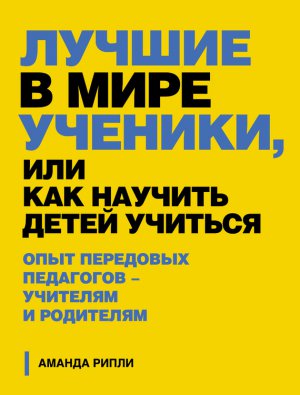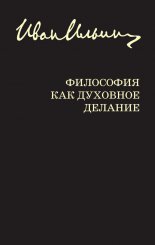Notice: Undefined variable: contentRead in /var/www/www-root/data/www/knizh.ru/funcs.php on line 681
Notice: Undefined variable: row in /var/www/www-root/data/www/knizh.ru/funcs.php on line 719
Notice: Trying to access array offset on value of type null in /var/www/www-root/data/www/knizh.ru/funcs.php on line 719
ïżœïżœïżœïżœïżœïżœ ïżœ ïżœïżœïżœïżœ ïżœïżœïżœïżœïżœïżœïżœ, ïżœïżœïżœ ïżœïżœïżœ ïżœïżœïżœïżœïżœïżœïżœ ïżœïżœïżœïżœïżœ ïżœïżœïżœïżœïżœïżœïżœ ïżœïżœïżœïżœïżœ ïżœïżœïżœïżœïżœïżœ

Almlund, Mathilde, Angela Lee Duckworth, James Heckman, and Tim Kautz. ïżœPersonality Psychology and Economicsïżœ. In Handbook of the Economics of Education, Volume 4, edited by Eric A. Hanushek, Stephen Machin and Ludger Woessmann, 1-182. Amsterdam: North-Holland, 2011.
America Achieves. Middle Class or Middle of the Pack?April, 2013.
Archer, Kim. ïżœBill Would Lift Required Graduation Testingïżœ. Tulsa World, December 28, 2011.
Archer, Kim. ïżœOwasso Board Joins High-Stakes Testing Protestïżœ. Tulsa World, August 14, 2012.
Arenson, Karen W. ïżœSouth Korea: 900 SAT Scores Canceledïżœ. New York Times, March 13, 2007.
Arum, Richard, and Josipa Roksa. Academically Adrift: Limited Learning on College Campuses.Chicago: The University of Chicago Press, 2011.
Aud, Susan, Mary Ann Fox, and Angelina KewalRamani. Status and Trends in the Education of Racial and Ethnic Groups.Washington, DC: The National Center for Education Statistics, 2010.
Aud, Susan, William Hussar, Grace Kena, Kevin Bianco, Lauren Frohlich, Jana Kemp, and Kim Tahan. The Condition of Education 2011 (NCES 2011-033). U.S. Department of Education, National Center for Education Statistics. Washington, DC: U.S. Government Printing Office, 2011.
Auguste, Byron, Paul Kihn, and Matt Miller. Closing the Talent Gap: Attracting and Retaining Top-Third Graduates to Careers in Teaching. McKinsey & Company, September, 2010.
Barber, Michael, and Mona Mourshed. How the Worldïżœs Best-Performing School Systems Come Out on Top.McKinsey & Company, September 2007.
Bernanke, Ben. ïżœThe Level and Distribution of Economic Well-Beingïżœ. Speech before the Greater Omaha Chamber of Commerce, Omaha, NE, February 6, 2007.
ïżœBildungsstudie ïżœ Durchweg schlechte Notenïżœ. FOCUS, December 3, 2001. Translation by Theresa Buchsttter.
Bill & Melinda Gates Foundation. Learning about Teaching: Initial Findings from the Measures of Effective Teaching Project. Measures of Effective Teaching Project, December, 2010.
Boe, Erling, Henry May, and Robert Boruch. Student Task Persistence in the Third International Mathematics and Science Study: A Major Source of Achievement Differences at the National, Classroom, and Student Levels. Philadelphia: Center for Research and Evaluation in Social Policy, 2002.
Boe, Erling, and Sujie Shin. ïżœIs the United States Really Losing the International Horse Race in Academic Achievement?ïżœ Phi Delta Kappan, 86, no. 9 (2005): 688ïżœ695.
Borgonovi, Francesca, and Guillermo Montt. ïżœParental Involvement in Selected PISA Countries and Economiesïżœ. OECD Working Papers No. 73. OECD Publishing, Paris, 2012.
Boser, Ulrich, and Lindsay Rosenthal. Do Schools Challenge Our Students? What Student Surveys Tell Us about the State of Education in the United States. Washington: Center for American Progress, July 10, 2012.
Boser, Ulrich. Return on Educational Investment: A district-by-district evaluation of U.S. educational productivity.Washington: Center for American Progress, January 2011.
Bowles, Samuel, and Herbert Gintis. Schooling in Capitalist America: Educational Reform and the Contradictions of Economic Life.New York: Basic Books, 1976.
Bracey, Gerald W. ïżœAnother Nation at Risk: German Students Scores in Academic Testsïżœ. Phi Delta Kappan, 84, no. 3, November 1, 2002.
Bronson, Po, and Ashley Merryman. NurtureShock: New Thinking about Children. New York: Hachette Book Group, 2009.
Bureau of the Census. State & County Quick Facts, Sallisaw, Oklahoma.Washington, DC: Bureau of the Census. http://quickfacts.census.gov/qfd/states/40/4065000.html. Accessed 2012.
Bureau of Labor Statistics. ïżœThe Employment Situation: December, 2011ïżœ. Bureau of Labor Statistics press release, January 6, 2012.
Catholic Information Agencyïżœ.Gniezno: Nationwide Launch of the School Yearïżœ. September 1, 1999. Translation by Justine Jablonska.
Cavanagh, Sean. ïżœOut-of-School Classes Provide Edgeïżœ. Education Week, April 22, 2009.
Center for Research in Mathematics and Science Education. Breaking the Cycle: An International Comparison of U.S. Mathematics Teacher Preparation. East Lansing: Michigan State University, 2010.
Center on Education Policy, George Washington University. State High School Exit Exams: A Policy in Transition.Washington, DC: Center on Education Policy, 2012.
Chae, S., J.-H. Hong, and T.J. Lee. ïżœAnatomy of the Rank Structure of Korean Universities: Toward a Design of Integrated Policies for Education Reform in Koreaïżœ. AP-EPRI/ KEDI Publications, 2005.
Chao, Ruth. ïżœBeyond Parental Control and Authoritarian Parenting Style: Understanding Chinese Parenting through the Cultural Notion of Trainingïżœ. Child Development 65(1994): 1111ïżœ1119.
Chao, Ruth. ïżœChinese and European American Mothersïżœ Beliefs about the Role of Parenting in Childrenïżœs School Successïżœ. Journal of Cross-Cultural Psychology 27, no. 4 (July 1996): 403ïżœ423.
Choi, lvaro, Jorge Calero, and Josep-Oriol Escardbul. Hell to Touch the Sky: Private Tutoring and Academic Achievement in Korea.Barcelona: Barcelona Instituteof Economics, 2011.
College Board, 2011 College-Bound Seniors: Total Group Profile Report, 2011.
Collins, Jim. Good to Great: Why Some Companies Make the Leap. .ïżœand Others Donïżœt. New York: HarperCollins, 2001.
Conn, Steven. ïżœIn College Classrooms, the Problem Is High School Athleticsïżœ. The Chronicle of Higher Education, April 15, 2012.
Coolahan, John, Paula Santiago, Rowena Phair, and Akira Ninomiya. Attracting, Developing and Retaining Effective Teachers: Country Note ïżœ Korea.Paris: OECD Publishing, 2004.
ïżœCurrent Expenditure per Pupil in Average Daily Attendance in Public Elementary and Secondary Schools, by State or Jurisdiction, Selected Years, 1959-60 through 2007ïżœ08ïżœ. National Center for Education Statistics. Accessed 2012.
Czajkowska, Agnieszka. ïżœKids Revoltïżœ. Gazeta Wyborcza, September 19, 2007. Translation by Mateusz Kornacki.
Daily Oklahomanïżœ.Past Out: School Officials Should Keep Moving Forwardïżœ. July 8, 2012.
Darling-Hammond, Linda. The Flat World and Education.New York: Teachers College Press, 2010.
Davidson, Adam. ïżœMaking It in Americaïżœ. The Atlantic, January/Feburary 2012.
Davies, Norman, and Roger Moorhouse. Microcosm: Portrait of a Central European City. London: Jonathan Cape, 2011.
Denhart, Matthew, and Christopher Matgouranis. Oklahoma Higher Education: Challenging the Conventional Wisdom.Oklahoma City: Oklahoma Council of Public Affairs, 2011.
Dervarics, Chuck, and Eileen OïżœBrien. Back to School: How Parent Involvement Affects Student Achievement.Alexandria: The Center for Public Education, 2011.
District of Columbia Department of Employment Services. ïżœDistrict of Columbia Strategic Workforce Investment Plan: For the Period of July 1, 2009 ïżœ June 30, 2010ïżœ. July 10, 2009.
Duckworth, Angela L., and Martin E. P. Seligman. ïżœSelf-Discipline Outdoes IQ in Predicting Academic Performance of Adolescentsïżœ. Psychological Science16, no. 12 (2005): 939ïżœ944.
Dweck, Carol S. ïżœCaution ïżœ Praise Can Be Dangerousïżœ. American Educator, Spring 1999.
The Economistïżœ.How to Be Topïżœ. October 18, 2007.
Education Trust. ïżœNot Good Enough: A Content Analysis of Teacher Licensing Examinationsïżœ. Thinking K-163, no. 1 (Spring 1999).
Eger, Andrea. ïżœwww.school.comïżœ. Tulsa World,August 15, 2011.
Fenty, Adrian, Joseph Walsh, and Bill Dean. ïżœDistrict of Columbia Strategic Workforce Investment Planïżœ. 2010.
Finnish National Board of Education. Performance Indicator for Initial Vocational Training in Finland 2011. Helsinki: Finnish National Board of Education, 2011.
Fleischman, Howard L., Paul J. Hopstock, Marisa P. Pelczar, and Brooke E. Shelley. Highlights From PISA 2009: Performance of U.S. 15-Year-Old Students in Reading, Mathematics, and Science Literacy in an International Context (NCES 2011-004). U.S. Department of Education, National Center for Education Statistics. Washington, DC: U.S. Government Printing Office, 2010.
Friedman, Thomas L. ïżœHow about Better Parents?ïżœ The New York Times,November 19, 2011.
Gamerman, Ellen. ïżœWhat Makes Finnish Kids So Smart?ïżœ The Wall Street Journal, February 29, 2008.
Glenn, David. ïżœWriting Assignments are Scarce for Students in Two Majors at Texas Collegesïżœ. The Chronicle of Higher Education, Jan. 18, 2011.
Gove, Michael. ïżœThe Benchmark for Excellenceïżœ. The Independent, Jan. 6, 2011.
Greenberg, Julie, Laura Pomerance, and Kate Walsh. Student Teaching in the United States.Washington, D.C.: National Council on Teacher Quality, 2011.
Greene, Jay P., and Josh B. McGee. ïżœWhen the Best Is Mediocreïżœ. Education Next 12, no. 1 (2012): 35ïżœ40.
Greene, Wayne. ïżœGraduation Testing Bill Advancesïżœ. Tulsa World,May 18, 2012.
Hakkarainen, Pentti. ïżœLearning and Development in Playïżœ. In Nordic Childhood and Early Education: Philosophy, Research, Policy, and Practice in Denmark, Finland, Iceland, Norway, and Sweden, edited by Johanna Einarsdottir and Judith T. Wagner. Greenwich, CT: Information Age Publishing, 2006.
Hancock, LynNell. ïżœWhy Are Finlandïżœs Schools So Successful?ïżœ Smithsonian, September, 2011.
Hanushek, Eric A., and Ludger Woessmann. Does Educational Tracking Affect Performance and Inequality? Difference-in-Differences Evidence Across Countries.Stanford: Stanford University, 2005.
Hanushek, Eric A., and Ludger Woessmann. Do Better Schools Lead to More Growth? Cognitive Skills, Economic Outcomes, and Causation.NBER Working Paper No. 14633. National Bureau of Economic Research, Cambridge, January, 2009.
Hanushek, Eric A., Paul E. Peterson, and Ludger Woessmann. ïżœTeaching Math to the Talented: Which Countries and States are Producing High-Achieving Students?ïżœ Education Next11 no. 1 (Winter 2011): 11ïżœ18.
Hanushek, Eric A., and Ludger Woessmann. The Knowledge Capital of Nations.Forthcoming.
Hanushek, Eric A., Paul E. Peterson, and Ludger Woessmann. U.S. Math Performance in Global Perspective: How Does Each State Do at Producing High-Achieving Students? PEPG Report No. 10ïżœ19. Harvard Universityïżœs Program on Education Policy and Governance and Education Next, Cambridge, November 2010.
Heckmann, Carsten. ïżœSchlechte Schler wegen schlecht gebildeter Lehrer?ïżœ Der Spiegel,December 4, 2001. Translation by Theresa Buchsttter.
Helliwell, John, Richard Layard, and Jeffrey Sachs, eds. World Happiness Report. New York: Earth Institute, 2012.
Henderlong, Jennifer, and Mark R. Lepper. ïżœThe Effects of Praise on Childrenïżœs Intrinsic Motivation: A Review and Synthesisïżœ. Psychological Bulletin128, no. 5 (2002): 774ïżœ795.
Henderson, Anne, and Karen Mapp. A New Wave of Evidence: The Impact of School, Family, and Community Connections on Student Achievement.Austin: National Center for Family and Community Connections with Schools, 2002.
Henry, Brad. FY-2011 Executive Budget.Oklahoma City: Oklahoma Office of State Finance, 2010.
Herrold, Kathleen, and Kevin OïżœDonnell. Parent and Family Involvement in Education, 2006ïżœ07 School Year, From the National Household Education Surveys Program of 2007.Washington, DC: National Center for Education Statistics and U.S. Department of Education, 2008.
Hinton, Mick. ïżœLegislature Junks High School Grad Test Requirementïżœ. Daily Oklahoman,May 21, 1992.
Hinton, Mick. ïżœGovernor to Require ïżœLiteracy Passports.ïżœ ïżœDaily Oklahoman, March 29, 1995.
Hofferth, Sandra L. ïżœChanges in American Childrenïżœs Time, 1997ïżœ2003ïżœ. International Journal of Time Use Research6, no. 1 (2009): 26ïżœ47.
Homel, Jacqueline, Astghik Mavisakalyan, Ha Trong Nguyen, and Chris Ryan. ïżœSchool Completion: What We Learn from Different Measures of Family Backgroundïżœ. Longitudinal Surveys of Australian Youth,Research Report 59, July 5, 2012.
Huntsinger, Carol, and Paul Jose. ïżœParental Involvement in Childrenïżœs Schooling: Different Meanings in Different Culturesïżœ. Early Childhood Research Quarterly24, no. 4 (2009): 398ïżœ410.
Huntsinger, Carol, Paul Jose, Shari Larson, Dana Balsink Krieg, and Chitra Shaligram. ïżœMathematics, Vocabulary, and Reading Development in Chinese American and European American Children over the Primary School Yearsïżœ. Journal of Educational Psychology92, no. 4, (2000): 745ïżœ760.
Ingram, Dale. ïżœFamily Plotïżœ. Tulsa World,October 18, 2009.
Jae-yun, Shim. ïżœShadow of Higher Educationïżœ. The Korea Times,Nov. 30, 2011.
Jauhiainen, A., J. Kivirauma, and R. Rinne. ïżœStatus and Prestige through Faith in Education: The Successful Struggle of Finnish Primary School Teachers for Universal University Trainingïżœ. Journal of Education for Teaching: International Research and Pedagogy24, no. 3 (November 1998): 269.
Johnson, Jean, Jon Rochkind, and Amber Ott. ïżœAre We Beginning to See the Light?ïżœ Public Agenda, June 2010.
Johnson, Sandy Scaffetta. Oklahoma Teacher Education Programs Under the Microscope: A Study of Oklahoma Elementary Education Mathematics Content Preparation. Oklahoma City: Oklahoma Business and Education Coalition, 2005.
Joerres, Jeff. ïżœCEO Working Summit Synopsisïżœ. Panel at the Atlanticïżœs New Work ra Summit, July 19, 2011, Washington, DC.
Jordan, Jennifer. ïżœA Higher Standardïżœ. The Providence Journal, October 11, 2009.
Kaczorowska, Teresa. ïżœThe New Need to Improveïżœ. Gazeta Wyborcza, September 2, 1999. Translation by Sarah Zarrow.
Kalbarczyk, Adam. ïżœAgainst Gymnasiumïżœ. Gazeta Wyborcza,October 1, 1998. Translation by Sarah Zarrow.
Kamm, Henry. ïżœThe Past Submerged: Wroclaw, Once German Breslau, Is Now a Vigorously Polish Cityïżœ. The New York Times, February 19, 1966.
Kanervio, Pekka. ïżœChallenges in Educational Leadership in Finnish Municipalitiesïżœ. Paper presented at the 6th International Symposium on Educational Research, Kempton Park, South Africa, July 19ïżœ23, 2010.
Kang, Shin-who. ïżœ67 Percent of Private Cram Schools Overcharge Parentsïżœ. The Korea Times, April 14, 2009.
Khan, Salman. The One World Schoolhouse: Education Reimagined. New York: Hachette Book Group, 2012.
Killackey, Jim, and Mick Hinton. ïżœOutlook Uncertain for Literacy Passportïżœ. Daily Oklahoman, March 26, 1995.
Killackey, Jim. ïżœState Education Secretary Urges High School Graduation Testïżœ. Daily Oklahoman, July 30, 1997.
Kim. Kimïżœs AFS Journey(blog). http://kimsafsjourney.blogspot.com/.
Kim, Hee-jin. ïżœBAI Finds Several Big Loopholes in Admission Systemïżœ. Korea JoongAng Daily, January 25, 2012.
Kim, Mi-ju, and Park Su-ryon. ïżœStudents Rely on Hagwon More Than Public Schoolsïżœ. Korea JoongAng Daily, February 19, 2010.
Kim, Young-hwa. ïżœConsequences of Higher Educational Expansion in Korea: Trends in Family Background and Regional Effects on Higher Educational Attainment, 1967ïżœ1984ïżœ. Korean Social Science Journal 18 (1992): 139ïżœ153.
Kivirauma, Joel, and Kari Ruoho. ïżœExcellence Through Special Education? Lessons from the Finnish School Reformïżœ. International Review of Education/Internationale Zeitschrift Fur Erziehungswissenschaft 53, no. 3 (2007): 283ïżœ302.
Koedel, Cory. ïżœGrading Standards in Education Departments at Universitiesïżœ. Education Policy Analysis Archives, 19 (2011): 1ïżœ23.
The Korea Timesïżœ.Education Warningïżœ. Nov. 25, 2011.
Korean Culture and Information Service. Facts about Korea.Seoul: Ministry of Culture, Sports, and Tourism, 2009.
Kruczkowska, Maria. ïżœReform Without Miraclesïżœ. Gazeta Wyborcza, May 27, 1998. Translation by Sarah Zarrow.
Kupiainen, Sirkku, Jarkko Hautamki, and Tommi Karjalainen. The Finnish Education System and PISA. Helsinki: Ministry of Education Publications, 2009.
Kwon, Hyunsoo. ïżœInclusion in South Korea: The Current Situation and Future Directionsïżœ. International Journal of Disability, Development & Education, 52.1 (2005): 62.
Landers, Jim. ïżœFinlandïżœs Education System a Model for Dallasïżœ. The Dallas Morning News, February 8, 2009.
Langworth, Richard, ed. Churchill by Himself: The Definitive Collection of Quotations. New York: PublicAffairs, 2011.
Lee, Hyo-sik. ïżœPrivate Education Costs Fall for Second Yearïżœ. The Korea Times, February 17, 2012.
Lee, Ki-Bong. ïżœThe Best of Intentions: Meritocratic Selection to Higher Education and Development of Shadow Education in Koreaïżœ. Ph.D. diss., Pennsylvania State University, 2003.
Lee, Robert. ïżœ18-year-old Murders Mom, Hides Body in Apartmentïżœ. The Korea Herald, November 24, 2011.
Leinwand, Steven, and Alan Ginsburg. Measuring Up: How The Highest Performing State (Massachusetts) Compares to the Highest Performing Country (Hong Kong) in Grade 3 Mathematics. Washington, DC: U.S. Department of Education and The Urban Institute, 2009.
Lemov, Doug. Teach Like a Champion. San Francisco: Jossey-Bass, 2010.
Lerner, Lawrence, Ursula Goodenough, John Lynch, Martha Schwartz, and Richard Schwartz. The State of State Science Standards: Oklahoma. Washington, DC: Thomas B. Fordham Institute, 2012.
Loveless, Tom. How Well Are American Students Learning? With Special Sections on High School Culture and Urban School Achievement. Washington, DC: Brookings Institute, 2001.
Loveless, Tom. How Well Are American Students Learning? With Sections on Arithmetic, High School Culture, and Charter Schools. Washington, DC: Brookings Institute, 2002.
Luxembourg Income Study (LIS) Inequality and Poverty Key Figures, http://www.lisdatacenter.org, Luxembourg: LIS. Accessed 2012.
Lyytinen, Jaakko. ïżœHelsinki Parents at Pains to Avoid Schools with High Proportion of Immigrantsïżœ. Helsingin Sanomat, January 1, 2011.
Magnuson, Katherine, and Jane Waldfogel, eds. Steady Gains and Stalled Progress: Inequality and the Black-White Test Score Gap. New York: Russell Sage Foundation, 2008.
Mandara, Jelani. ïżœAn Empirically Derived Parenting Typologyïżœ. Paper presented at the Achievement Gap Initiative Conference, Harvard University, Cambridge, June 29, 2011.
Manyika, James, Susan Lund, Byron Auguste, Lenny Mendonca, Tim Welsh, and Sreenivas Ramaswamy. An Economy That Works: Job Creation and Americaïżœs Future. McKinsey & Company, June 2011.
Marshall, Paula A. Sweet as Pie, Tough as Nails. Tulsa: Expert Message Group, 2011.
May, Henry, Angela Duckworth, and Erling Boe. Knowledge vs. Motivation: What Do International Comparisons of Achievement Test Scores Really Tell Us? Unpublished manuscript, 2012.
McKinsey & Company. The Economic Impact of the Achievement Gap in Americaïżœs Schools. April 2009.
MetLife, Inc. The MetLife Survey of the American Teacher: Teachers, Parents and the Economy. New York: MetLife, 2012.
Miliband, Ed. ïżœOn Social Mobilityïżœ. Speech at the Sutton Trust-Carnegie Corporation Social Mobility Summit, London, UK, May 22, 2012.
Moskowitz, Eva, and Arin Lavinia. Mission Impossible: How the Secrets of the Success Academies Can Work in Any School.San Francisco: Jossey-Bass, 2012.
Mourshed, Mona, Chinezi Chijioke, and Michael Barber. How the Worldïżœs Most Improved School Systems Keep Getting Better. London: McKinsey & Company, 2010.
Michigan State University News. ïżœMSU Scholars Help Minnesota Become Global Leader in Mathïżœ. December 9, 2008.
Na, Jeong-ju. ïżœBounty Hunters Targeting ïżœHagwon.ïżœ ïżœThe Korea Times, September 18, 2012.
Na, Jeong-ju. ïżœCram Schools Turning to NEAT to Boost Revenueïżœ. The Korea Times, February 8, 2012.
National Council on Teacher Quality. Itïżœs Easier to Get into an Education School than to Become a College Football Player. Washington, DC: National Council on Teacher Quality, 2011.
National Council on Teacher Quality. Teacher Quality Roadmap: Improving Policies and Practices in LAUSD. Washington, DC: National Council on Teacher Quality, 2011.
National Governors Association. Benchmarking for Success: Ensuring U.S. Students Receive a World-Class Education. Washington, DC: National Governors Association, the Council of Chief State School Officers, and Achieve, Inc., 2008.
National Science Board. Science and Engineering Indicators 2010. Arlington, VA: National Science Foundation, 2010, Chapter 4.
Nixon, Ron. ïżœCongress Blocks New Rules on School Lunchïżœ. New York Times, November 15, 2010.
Northeastern State University. Fact Book: Academic Year 2010ïżœ2011.
Obama, Barack. ïżœState of Union addressïżœ. January 25, 2011.
Obama, Barack. ïżœRemarks by the President on the ïżœEducation To Innovateïżœ Campaignïżœ. Washington, D.C., November 23, 2009.
Office of State Finance, State of Oklahoma. FY 2011 Executive Budget. Accessed 2012.
Official Statistics of Finland. Special Education.Helsinki: Statistics Finland, 2012.
OECD. Building a High-Quality Teaching Profession: Lessons from Around the World. Paris: OECD Publishing, 2011.
Oklahoma High School Indicators Project. Remediation Report, Fall 2010.
Oklahoma City: Oklahoma State Regents for Higher Education, 2010.
Oklahoma State Department of Education. Sallisaw Public School No Child Left Behind Act Annual Report Card 2008ïżœ2009. Oklahoma City, 2009.
Oklahoma State Department of Education. Sallisaw Public School No Child Left Behind Act Annual Report Card 2009ïżœ2010. Oklahoma City, 2010.
Oklahoma Stte Department of Education. Sallisaw Public School No Child Left Behind Act Annual Report Card 2010ïżœ2011. Oklahoma City, 2011.
Oklahoma State Department of Education. Superintendentïżœs Salary Listing. Oklahoma City, 2011.
Oklahoma Commission for Teacher Preparation, Teacher Preparation Inventory 2012. Oklahoma City: OCTP, 2012.
Orfield, Gary, and Chungmei Lee. Historic Reversals, Accelerating Resegregation, and the Need for New Integration Strategies. Los Angeles: The Civil Rights Project/Proyecto Derechos Civiles, 2007.
Paige, Rod. ïżœU.S. Students Average Among International Peersïżœ. U.S. Department of Education press release. Washington, DC, December 4, 2001.
Parmar, Parminder, Sara Harkness, and Charles M. Super. ïżœTeacher or Playmate? Asian Immigrant and Euro-American Parentsïżœ Participation in Their Young Childrenïżœs Daily Activitiesïżœ. Social Behavior and Personality: An International Journal, 36 (2008): 163ïżœ174.
Pennsylvania Department of Education. ïżœSAT and ACT Scoresïżœ. http://www.portal.state.pa.us/portal/server.pt/community/data_and_statistics/7202/sat_and_act_scores/674663. Accessed 2012.
Peterson, Paul E., and Carlos Xabel Lastra-Anadn. ïżœState Standards Rise in Reading, Fall in Mathïżœ. Education Next 58, no. 4 (2010): 12ïżœ16.
Peterson, Paul E., Ludger Woessmann, Eric A. Hanushek, Carlos X. Lastra-Anadn. Globally Challenged: Are U.S. Students Ready to Compete? The Latest on Each Stateïżœs International Standing in Math and Reading. PEPG Report No: 11ïżœ03, August 2011.
Poehlman, Lindsay. 2011ïżœ2012 International Youth Exchange Statistics. Alexandria, VA: The Council on Standards for International Educational Travel, 2012.
Price, Marie, and Barbara Hoberock. ïżœLegislative Roundup: Education Committee Backs ïżœHigh-Stakesïżœ Student Testing.ïżœ ïżœTulsa World, March 8, 2005.
Rahn, Kim. ïżœStudent Kills Mother, Keeps Body at Home for 8 Monthsïżœ. The Korea Times, Nov. 24, 2011.
Ravitch, Diane. ïżœWhat Can We Learn from Finland?ïżœ Bridging Differences(blog), Education Week. October 11, 2011.
Ravitch, Diane. Speech at ïżœSave Our Schoolsïżœ rally on the National Mall. Washington, DC, July 30, 2011.
Rich, Vera. ïżœMinister Who Got His Sums Wrong Is Forced to Quitïżœ. THE, August 4, 2000.
Richtel, Matt. ïżœIn Classroom of Future, Stagnant Scoresïżœ. New York Times, September 3, 2011.
Ripley, Amanda. ïżœBrilliance in a Box: What Do the Best Classrooms in the World Look Like?ïżœ Slate, October 20, 2010.
Robelen, Erik W. ïżœStudy Links Rise in Test Scores to Nationsïżœ Outputïżœ. Education Week, January 25, 2010.
Rolland, Megan. ïżœNational Groupïżœs Plan to be Used: Kern Decries School Standardïżœ. The Oklahoman, October 7, 2011.
Rolland, Megan, and Tricia Pemberton. ïżœRaising Bar for Final Tests Leaves Some Feeling Worryïżœ. The Oklahoman, April 3, 2011.
Rotherham, Andrew J. ïżœWhen It Comes to Class Size, Smaller Isnïżœt Always Betterïżœ. Time, March 3, 2011.
Rothwell, Jonathan. Housing Costs, Zoning, and Access to High Scoring Schools.Washington, DC: Brookings Institute, 2012.
Sachs, Jeffrey. Interviewed on Commanding Heights. Public Broadcasting System, June 15, 2000.
Sahlberg, Pasi. Finnish Lessons: What Can the World Learn from Educational Change in Finland? New York: Teachers College Press, 2011.
Schmidt, William, and Curtis McKnight. Inequality for All: The Challenge of Unequal Opportunity in American Schools. New York: Teachers College Press, 2012.
Schmidt, William, Maria Teresa Tatto, Kiril Bankov, Sigrid Blmeke, Tenoch Cedillo, Leland Cogan, Shin Il Han, Richard Houang, Feng Jui Hsieh, Lynn Paine, Marcella Santillan, and John Schwille. The Preparation Gap: Teacher Education for Middle School Mathematics in Six Countries (MT21 Report).East Lansing: Michigan State University, 2007.
Schneider, Mark. ïżœThe International PISA Testïżœ. Education Next 9, no. 4 (Fall 2009).
Scholastic and the Bill & Melinda Gates Foundation. Primary Sources: 2012 ïżœ Americaïżœs Teachers on the Teaching Profession. Scholastic U.S.A., 2012.
SciMathMN. Minnesota TIMSS: The Rest of the Story: A Summary of Results as of October 2009. SciMathMN, 2009.
Scott, Joan. ïżœTestimony by Professor Joan Wallach Scott Before the Pennsylvania General Assemblyïżœs House Select Committee on Student Academic Freedomïżœ. November 9, 2005.
Seligman, Martin E.P., Karen Reivich, Lisa Jaycox, and Jane Gillham. The Optimistic Child: A Proven Program to Safeguard Children Against Depression and Build Lifelong Resilience. New York: Houghton Mifflin, 2007.
Seth, Michael J. Education Fever: Society, Politics, and the Pursuit of Schooling in South Korea. Honolulu: University of Hawaii Press, 2002.
Shin-who, Kang. ïżœPrivate Education Spending to Be Halvedïżœ. The Korea Times, January 27, 2010.
Shockley, Martin Staples. ïżœThe Reception of The Grapes of Wrathin Oklahomaïżœ. American Literature 15, no. 4 (1944): 351ïżœ361.
Simola, Hannu, and Risto Rinne. ïżœPISA Under Examination: Changing Knowledge, Changing Tests, and Changing Schoolsïżœ. Comparative and International Education, 11, Section V (2011): 225ïżœ244.
Song-ah, Kim. ïżœLiving in Harmony with Disabledïżœ. The Korea Times, November 25, 2009.
Sorensen, Clark W. ïżœSuccess and Education in South Koreaïżœ. Comparative Education Review, 38, no. 1 (1994).
Suh-young, Yun, and Na Jeong-ju. ïżœNation Holds Breath for Most Crucial Testïżœ. The Korea Times, November 10, 2011.
Suh-young, Y. ïżœMy Dream Is to Reshape Koreaïżœs Educationïżœ. The Korea Times, September 21, 2011.
Statistics Korea. The 2010 Survey of Private Education Expenditure. 2011.
Steinbeck, John. The Grapes of Wrath. New York, NY: Penguin Group, 1939.
Tauber, Robert T. Classroom Management: Sound Theory and Effective Practice. Westport: Praeger Publishers, 2007.
Taylor, Leonore. ïżœFinns Win, but Australian Students Are a Class Actïżœ. Australian Financial Review, December 5, 2001.
Time. ïżœNorthern Theatre: Sisu,ïżœ January 8, 1940.
Toffler, Alvin. Future Shock. New York: Random House, 1970.
Tucker, Marc S., ed. Surpassing Shanghai: An Agenda for American Education Built on the Worldïżœs Leading Systems. Cambridge: Harvard University Press, 2011.
UNICEF. Child Poverty in Perspective: An Overview of Child Well-Being in Rich Countries. Florence: UNICEF Innocenti Research Centre, 2007.
U.S. Department of Education. Education Dashboard. http://dashboard.ed.gov. Accessed 2012.
U.S. Department of Education, National Center for Education Statistics. Table B.1.70: Average combined mathematics literacy scores of 15-year-old students, by national quartiles of the PISA index of economic, social and cultural status (ESCS) and jurisdiction: 2003. International Data Table Library, 2012. http://nces.ed.gov/surveys/international/tables/B_1_70.asp. Accessed 2012.
U.S. Department of Education, National Center for Education Statistics. Table B.1.71: Average combined mathematics literacy scores of 15-year-old students, by national quartiles of the PISA index of economic, social and cultural status (ESCS) and jurisdiction: 2009.International Data Table Library, 2012. http://nces.ed.gov/surveys/international/tables/B_1_71.asp. Accessed 2012.
U.S. Department of Education, National Center for Education Statistics. Digest of Education Statistics, 2010: Table 3: Enrollment in educational institutions, by level and control of institution: Selected years, 1869-70 through fall 2019.
U.S. Department of Education, National Center for Education Statistics. Digest of Education Statistics, 2010: Table 45: Children 3 to 21 years old served under Individuals with Disabilities Education Act, Part B, by type of disability: Selected years, 1976-77 through 2008-09.
U.S. Department of Education, National Center for Education Statistics. National Assessment of Educational Progress (NAEP).Various years, 1990ïżœ2011, Mathematics Assessments.
U.S. Department of Education, National Center for Education Statistics. Table 8: Average number of public school teachers and average numbe of public school teachers who were dismissed in the previous year or did not have their contracts renewed based on poor performance, by tenure status of teachers and state: 2007ïżœ08. Schools and Staffing Survey (SASS), Public School District Data File, 2007ïżœ08.
U.S. Department of Education, Institute of Education Sciences, National Center for Education Statistics. Table 194: Current expenditure per pupil in average daily attendance in public elementary and secondary schools, by state or jurisdiction. Various years, 1959-60 through 2007ïżœ8.
U.S. Department of Education, Institute of Education Sciences, National Center for Education Statistics. Table 135: American College Testing (ACT) Score Averages, by Sex: 1970ïżœ1997.






